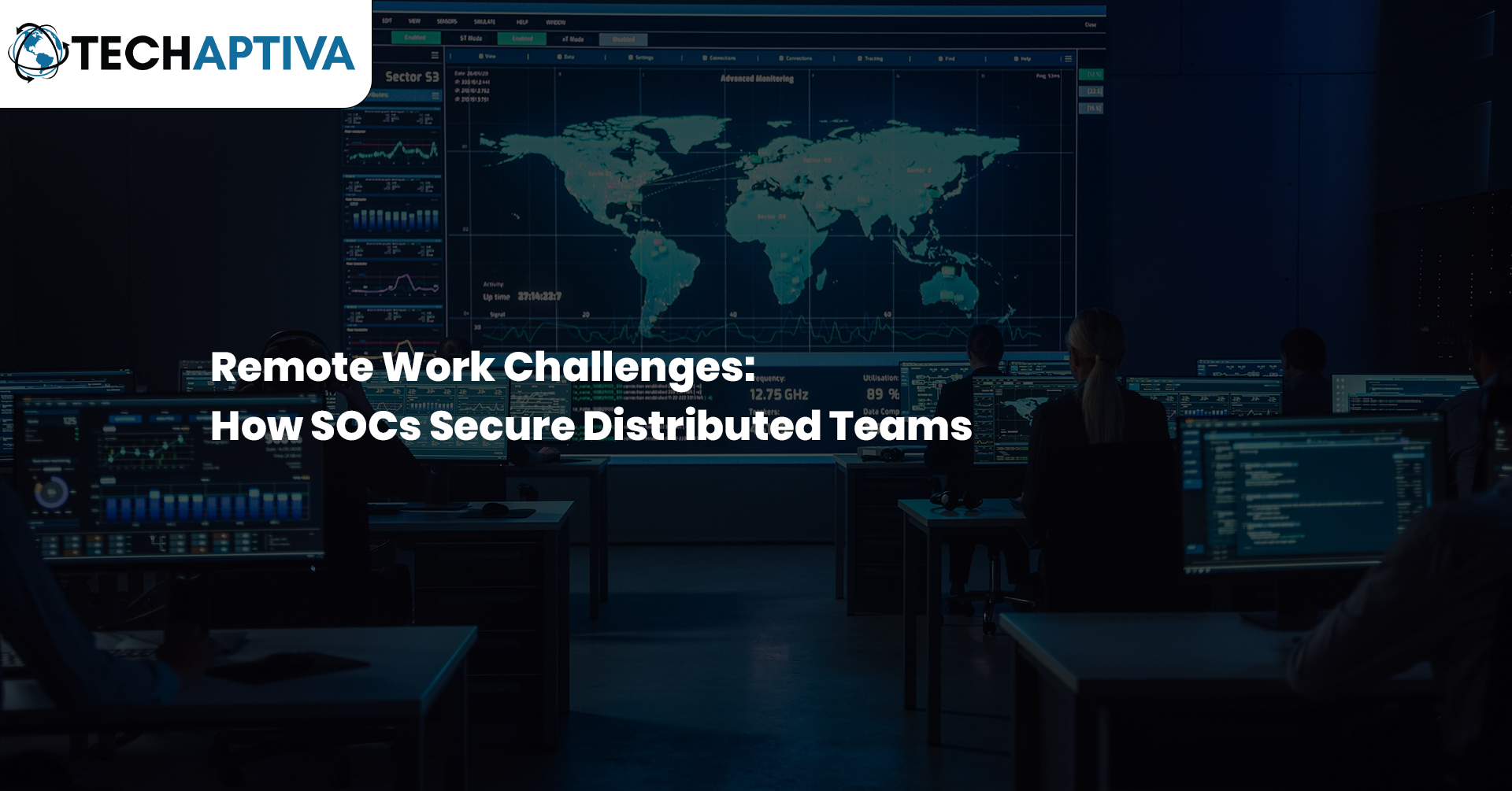Remote Work Challenges: How SOCs Secure Distributed Teams
The widespread shift to remote and hybrid work has fundamentally altered the way businesses approach cybersecurity. Unlike traditional office setups, where networks and devices are centralized and protected behind robust perimeter defenses, remote work introduces fragmented endpoints, diverse home network setups, and increased reliance on public cloud services. Security Operations Centers (SOCs) are at the heart of managing this expanded attack surface, continuously monitoring and protecting employees, applications, and data—no matter where work happens.
Today, many organizations partner with the best SOC provider in Kochi to extend enterprise-grade threat monitoring to remote workers across regions. This partnership helps to address critical vulnerabilities, especially in remote-first environments supported by Managed IT Services in Kerala, which ensure endpoint protection, network security, and cloud workload visibility.
Key Challenges SOCs Face in Remote Work Environments:
- Unsecured Home Networks: Employees’ home routers often lack enterprise-grade security controls.
- Personal Devices: Many remote workers use BYOD (Bring Your Own Device), making endpoint protection inconsistent.
- Cloud & SaaS Sprawl: Critical data now resides in multiple SaaS platforms, requiring broad visibility and control.
- Phishing & Credential Theft: Remote workers are more exposed to social engineering attacks outside company firewalls.
- Reduced Physical Oversight: IT teams cannot physically audit or secure remote devices and workspaces.
How SOCs Tackle These Challenges — Real-World Use Cases:
Use Case 1: Stopping Credential Theft in a Remote Environment
A multinational consulting firm noticed repeated failed login attempts into its project management SaaS platform from a foreign IP address during off-hours. The SOC’s SIEM platform triggered an alert based on anomaly detection algorithms. Upon deeper investigation, they discovered that a remote employee’s corporate account was compromised due to a phishing attack.
The SOC immediately initiated a response playbook:
- Disabled the compromised account,
- Forced company-wide password resets, and
- Rolled out company-wide phishing awareness training.
Thanks to proactive threat detection, sensitive project data and client information were protected from unauthorized access.
Use Case 2: Remote Endpoint Malware Containment
A retail chain’s SOC identified that several remote employees from their finance team had unknowingly downloaded a trojan malware via a fake invoice email. The EDR solution deployed on all company laptops flagged suspicious PowerShell activity.
The SOC team remotely:
- Isolated the infected devices from the network,
- Conducted forensic analysis to identify the malware’s source,
- And restored systems from clean backups.
As a result, the malware was contained within hours, preventing lateral movement into the company’s ERP and payment processing systems.
Use Case 3: Cloud Security for a Distributed Software Development Team
A software product company with developers working remotely in multiple time zones faced unauthorized API calls from a misconfigured cloud storage bucket. Their SOC’s Cloud Security Posture Management (CSPM) platform flagged these misconfigurations.
The SOC promptly:
- Blocked external access to the exposed APIs,
- Implemented IAM role restrictions,
- And automated configuration compliance checks for future deployments.
This prevented potential source code leaks and strengthened their DevOps pipeline’s security posture.
Use Case 4: Protecting Healthcare Data in Remote Consultations
A healthcare provider offering telemedicine services experienced an unusual spike in VPN traffic during non-working hours. The SOC detected that remote clinical staff devices were communicating with unknown external servers. After correlation with threat intelligence feeds, it was discovered to be an active botnet infection.
The SOC team:
- Isolated the devices,
- Conducted endpoint remediation,
- And secured VPN access with stricter controls like geo-restrictions and device compliance checks.
This rapid response helped protect sensitive patient health records and maintained HIPAA compliance.
Use Case 5: Behavioral Anomaly in a Remote Sales Team
An FMCG company’s SOC utilized User Behavior Analytics (UBA) to monitor remote employees’ activities. One sales team member, working from a remote location, suddenly started downloading large volumes of pricing data outside of usual working hours.
The SOC flagged this as a potential insider threat. Upon investigation, it was found the employee was planning to leave the company and take proprietary data to a competitor.
The SOC took preventive actions:
- Revoked the user’s access rights,
- Opened an HR investigation,
- And strengthened data access policies for all remote users.
Final Thoughts
Modern SOCs are no longer confined to corporate data centers—they extend their protection to home offices, personal devices, and cloud platforms. By leveraging SIEM, SOAR, XDR, EDR, CSPM, and UBA technologies, SOC teams can detect suspicious activities, automate response actions, and minimize dwell time across remote environments.
As organizations search for the best cybersecurity consulting in Kochi, they are increasingly relying on expert partners who understand regional business needs and global cyber threats. Working with a top provider of cybersecurity in Kochi empowers businesses to secure remote teams efficiently and continuously adapt to evolving risks.


